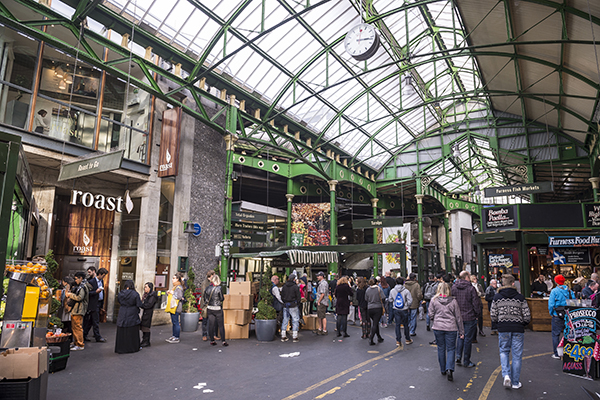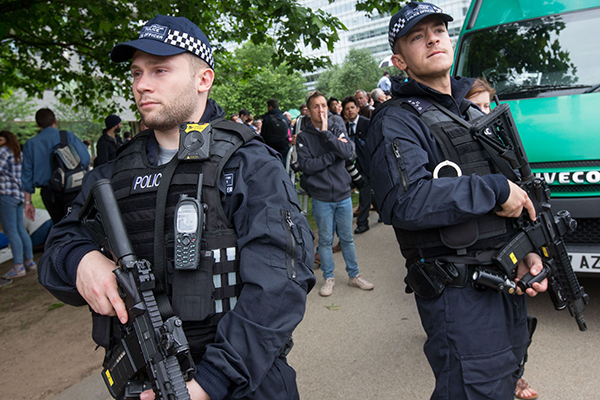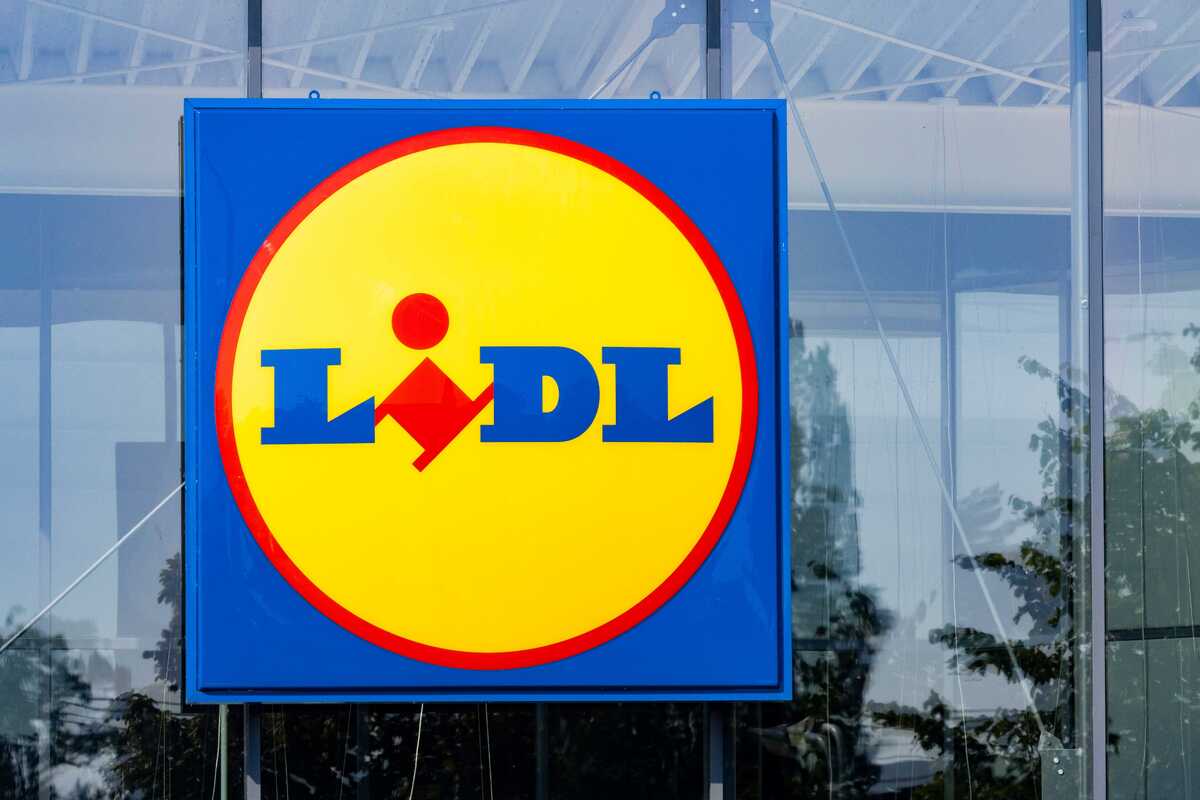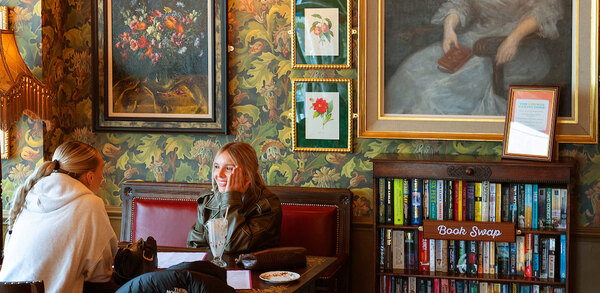Terrorism: how to prepare
Hospitality venues in the 21st century need to be ready for any number of emergencies, including the increased threat from terrorists. Fortunately, there is a lot of support and advice available to help you limit the risk. Rosalind Mullen reports
The recent incidents at Westminster Bridge, Manchester Arena, London Bridge, Borough Market and Finsbury Park show that terrorism in the UK is a very real and serious danger, and that crowded places, including hotels, bars and restaurants, are a potential target.
The horrific attack at London's Borough Market involved three terrorists armed with knives rampaging through cafés, restaurants and bars, killing and injuring staff and guests. It underlined the vulnerability of an industry that thrives on being welcoming and hospitable, rather than being a fortress.
But there are lots of training resources available to help keep your business safe. Many operators, for instance, will already be familiar with Project Griffin and Project Argus, which are the government's counter-terrorism workshops, and they will be getting advice from the Counter Terrorism Security Advisor in their local police force (see panels). And to stress the importance of having procedures in place, some of the businesses caught up in the attacks on 3 June have shared insights into what they learned from being in a live situation.
At restaurant Black and Blue in Stoney Street, several people were stabbed when the terrorists forced their way in, but operations director Nicky Donald believes more lives would have been lost if staff had not been trained.
"We include terrorism training and show the ‘Run, Hide, Tell' video developed by the police. The video provides an automatic response to situations such as [this attack]. We are confident that this response, when events unfolded, proved instrumental in saving lives. Police advice proved critical and we would recommend operators incorporating all of it, where possible, into staff training."
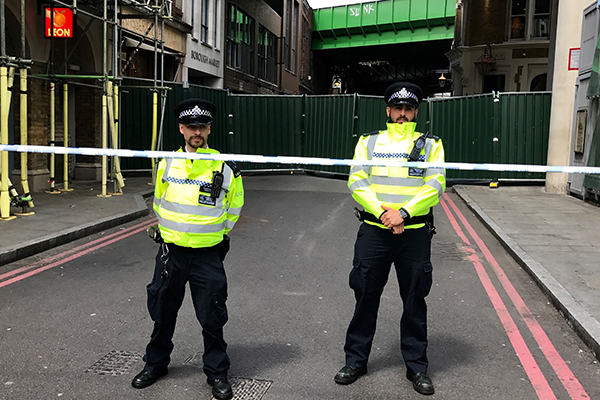
The restaurantâs âexcellentâ CCTV system is being used to help police with enquiries, but Donald says the business intends to boost security by employing bouncers every evening, rather than just Thursdays to Saturdays.
While some hotels in the vicinity were evacuated, further afield the London Hilton Tower Bridge was reported to have accommodated dozens of people in its lobby in the aftermath of the attack, and the 267-bedroom five-star Andaz hotel in Liverpool Street was used as a rescue centre for the less seriously injured.
Otto Steenbeek, general manager at the Andaz, says the hotel had survivor reception centre (SRC) procedures in place that â¨dovetailed with those of the City of London Police Casualty Bureau. However, he adds â¨that such plans have to be adaptable in the event of an emergency.
âWe have a special situations guide in place for a myriad of different emergencies, including being an SRC,â says Steenbeek. âWe have been working with the police and emergency services and have done a real-life exercise with them to gauge response and enhance understanding of what was required.â
However, the team learned a lot from being in a live situation. âWe have already reviewed our own SRC plan and made a number of changes, so that if called upon again, we can provide an even better service â" for example, phone chargers were in high demand,â says Steenbeek. âWe intend to share our experiences with other designated SRCs, so that they can learn first-hand from us and ask us any questions they may have.â
Steenbeek recommends having a simple, logical and practical SRC plan that can be â¨easily implemented when a request comes in that your property is needed. âYou will have around 45-60 minutes to set up before the action starts,â he says. âWe had a solid â¨plan in place, so there was nothing we â¨would prioritise differently. Communication â¨during such events is often hallenging, although â¨we managed very well on this occasion.â
Managing guests, many of whom were in a state of disbelief or shock, was easier than expected â" they all wanted security and refuge and so they were co-operative.
âColleagues knew for a large part what was expected from them,â he says. âThey didnât â¨ask questions, they were extremely caring â¨and showed perseverance, empathy and stamina in the light of great grief. Also, a strong leadership from our security and night manager made sure that [employees] could fully concentrate on the guests, and that tasks were well and clearly distributed. The teamwork was amazing.â
According to sergeant Craig McMahon, the City of Westminster Policeâs business engagement and hotel liaison, the response of local hotels was impressive. âI can think of no other industry or business group more prepared,â he says. âThis is due to their collaborative working approach, willingness to work closely with police and security services, and their information-sharing protocols.â
McMahon also commended the bravery of hoteliers. âOne particular hotel implemented the lockdown procedure, then undertook dynamic risk assessments with regard to allowing people entry while the incident was still live,â he says. âThis, in itself, was a particularly selfless act and I think they are to be applauded for their efforts. This resulted in more than 100 people being given safe shelter and subsequently beds for the night, as well as feeding 150-plus NHS staff and emergency services over the following 24 hours.
âThe hotel in question has no desire to be identified, as [staff] were simply doing what they thought was the humane and compassionate thing in the circumstances, and not for PR purposes.â
However, McMahon says the hotel was later unfairly vilified on social media by one individual, who was not injured and was turned away. This negative publicity highlights the added difficulty that hospitality venues may find themselves under in an emergency situation, as one individual, Ian Stewart, found out when he was prevented from entering the Shangri-la hotel in the Shard.
In a separate incident following that night, Paul Brackley, general manager of the hotel, was forced to issue this comment: âWe deeply regret not being able to allow Mr Stewart into the hotel when he was in the area. We were able to shelter 40 people who were in the vicinity, but at one point, we were instructed by the police not to allow anyone to enter or exit the hotel, as part of the emergency response. We apologise for any misunderstanding, and our thoughts are with the victims and their friends and family.â
- Seek advice from your â¨local police counter-terrorism security advisor
- Risk management is crucial. Keep abreast of threat levels and assess whether the location of your business, its guests or activities might attract an attack
- Donât work in isolation. Co-operate with your landlord, security staff, emergency services, the police and your neighbours â¨on security arrangements
- Provide adequate information, training and equipment to all staff
- Security should be seen as part of every employeeâs responsibility, so make it easy for them to raise concerns or report observations
- Put procedures and competent staff in place to deal with imminent and serious danger and evacuation
- Have measures in place to limit access into service or back-of-house corridors, and have vehicle access control measures in goods and service yards
- Break bad habits, such as staff taking shortcuts through fire exits. Reinstate good security practice
- Effective CCTV may pick up â¨on terrorist surveillance activity, â¨so check your system for blind spots and quality of recordings. Ensure that you keep recordings for at least 31 days
- Establish and rehearse bomb threat and evacuation drills, but during an incident, assess whether it might be safer to stay in the building. Appoint staff to act as marshals and contacts once the assembly point has been reached â" this should be a minimum of 100 metres away from any suspect item
- To protect against vehicle-based, improvised explosive devices, have policies in place to prevent unchecked vehicles parking in underground car parks beneath public areas
- Make your premises as blast-resistant as possible. Fit anti-shatter film to windows and vehicle barriers to protect against suicide bombers driving into your premises
- Key information and telephone numbers should be prominently displayed
- Prepare for the fact that inâ¨the aftermath of an attack, â¨mobile communications mayâ¨be temporarily unavailable
- Detailed information is available in the Counter Terrorism Protective Security Advice for Bars, Pubs and Nightclubs and Counter Terrorism Protective Security Advice for Hotels and Restaurants documents, which can be downloaded from www.gov.uk****Offset potential hazards
- Flying glass causes many casualties in urban terrorist attacks. Anti-shatter film is a relatively inexpensive solution.â¨If you are installing new â¨glass, consider laminated â¨glass. Get specialist advice from your police counter-terrorism security advisor or visit â¨www.cpni.gov.uk****What can I do now?
- Carry out a risk and â¨vulnerability assessment â¨specific to your business
- Identify a range of practical protective security measures appropriate for each of the response levels. Your counter-terrorism security advisor â¨can assist you with this
- Check the good practice checklists in the National Counter Terrorism Security Office guides for the hospitality industry
- Check out the websites that are listed above for detailed information
- Cross-Sector Safety and Security Communications. Sign up to the newsletter â¨to get free regular crime prevention and counter-terrorism security advice. www.vocal.co.uk/cssc/about-cssc â¨
- The National Counter Terrorism Security Office is the authoritative source â¨for counter-terrorism information. www.gov.uk/government/organisations/national-counter-terrorism-security-office
- Project Argus, a counter-terrorism testing â¨and exercising initiative. www.gov.uk/government/publications/project-argus/project-argusâ¨
- Project Griffin, a national counter-terrorism awareness initiative for business. www.gov.uk/government/publications/project-griffin/project-griffin****Be aware
With certain emergencies, such as a fire, â¨bear in mind that under the requirements â¨of the Health & Safety at Work Act 1974 â¨and the Regulatory Reform (Fire Safety) Order 2005, you could face criminal prosecution or penalties if it was discovered, for instance, that you had not carried out regular risk assessments.
You also need to protect your reputation. This can â¨be seriously damaged if â¨it later transpired that you hadnât taken security issues seriously and had therefore endangered staff and guests.



